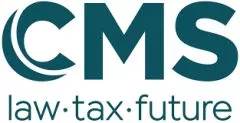The European Securities and Markets Authority ("ESMA") has updated its supervisory briefing on the definition of investment advice under MiFID II (the "Briefing"). The Briefing replaces the old guidance from 2010 and specifically addresses the application of investment advice to new business models and the use of social media and mobile apps.
Scope
The Briefing contains useful guidance from the European supervisor for all parties that may provide investment advice, such as investment firms, credit institutions, UCITS management companies and alternative investment fund managers (AIFMs). Furthermore, the guidance can be used by parties to assess whether their own services fall within the scope of investment advice. This can especially be relevant for finfluencers. In its Briefing, ESMA covers the following aspects:
- The provision of personal recommendations and whether other forms of presenting information could constitute investment advice;
- The presentation of a recommendation as suitable for a client or based on the client's circumstances;
- Perimeter issues around the definition of personal recommendation; and
- Issues around the form of communication.
What you need to know
Although the definition of investment advice has not changed since the guidance from 2010, the Briefing addresses its application to align with new business models and recent technological developments. The Briefing seeks to connect the existing definition of investment advice with the new ways of investment advice in which online advice plays a major role.
Under MiFID II, investment advice means the provision of personal recommendations to a client, either upon its request or at the initiative of the investment firm, in respect of one or more transactions relating to financial instruments. That recommendation must be presented as suitable for that person or must be based on a consideration of the circumstances of that person. ESMA made the following clarifications regarding this definition:
- Not only explicit statements qualify as recommendations. Recommendations may also be provided in an implicit or indirect manner;
- Copy trading, whereby a firm can give clients access to portfolio of 'copied traders', whose trades can be copied, may qualify as investment advice;
- Whether a recommendation is "generic advice" is clarified;
- Even if a clear, prominent and understandable disclaimer is provided stating that no advice or recommendation is being given, a firm could still be deemed as having presented a recommendation;
- Even though a recommendation made exclusively to the public does not qualify as investment advice, recommendations made through internet websites, investment apps or social media could be regarded as personal recommendations;
- If a firm gathers information on a person's circumstances while providing training or courses, and these circumstances are used as a basis for a recommendation, this would qualify as investment advice; and
- The response to the request of a professional client to find a product by giving the firm precise information regarding the product's characteristics does not qualify as investment advice, unless the investment firm has expressed an opinion on the product's suitability.
Anything else?
ESMA included a diagram in the Briefing containing the five key tests for investment advice and addressed the questions from the diagram in four practical cases to clarify the guidance. The diagram and the practical cases can serve as a helpful tool for market parties to determine whether a service constitutes of investment advice that requires a license.
The content of this article is intended to provide a general guide to the subject matter. Specialist advice should be sought about your specific circumstances.



